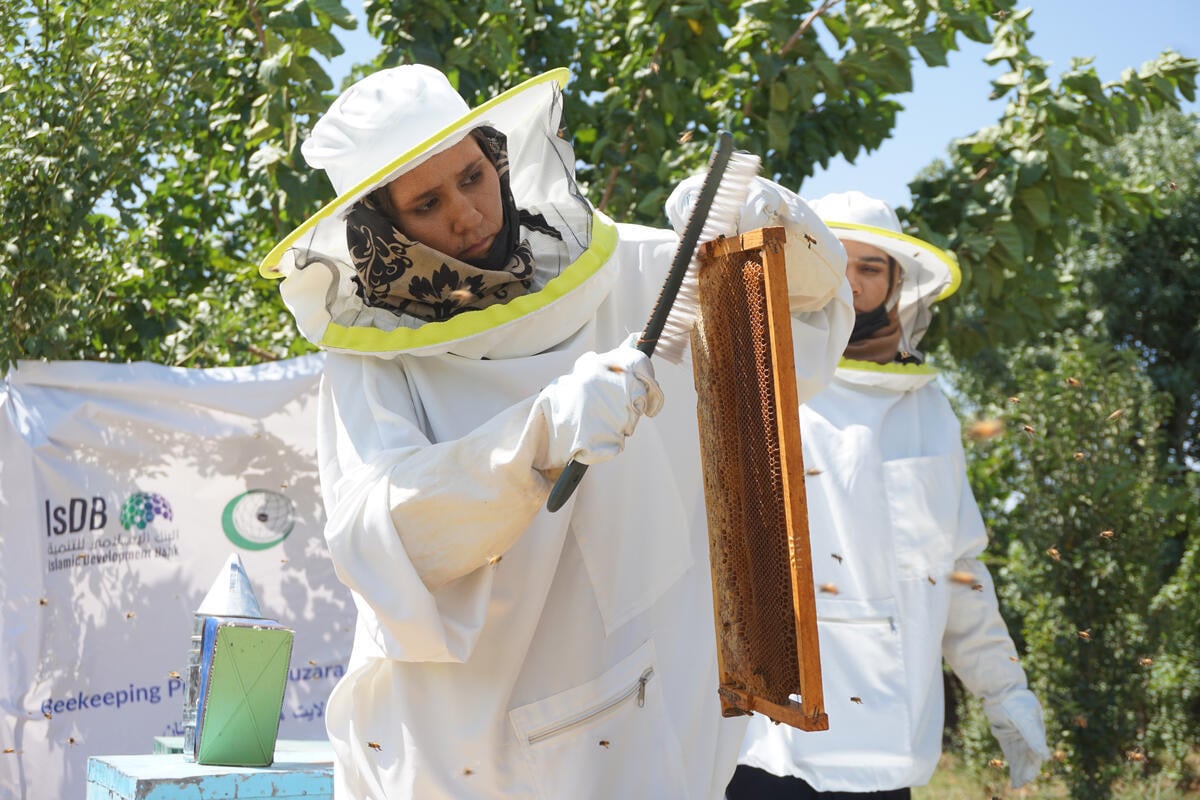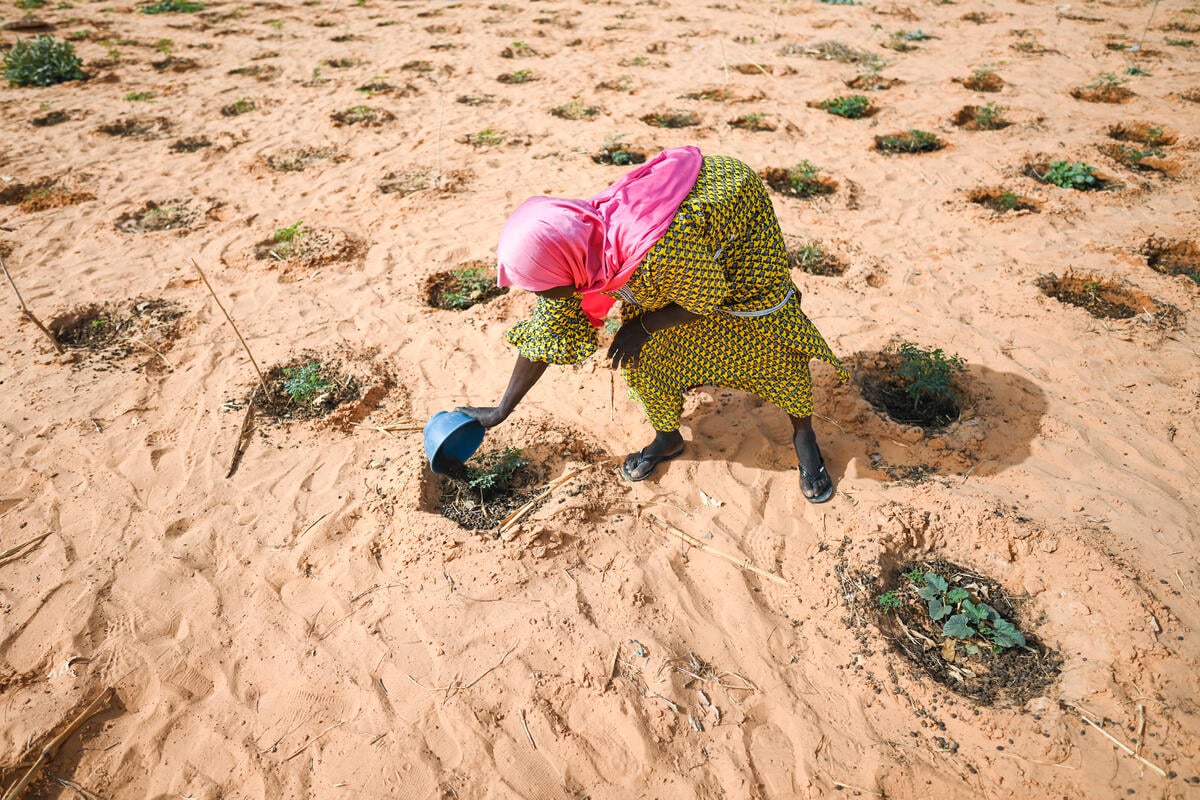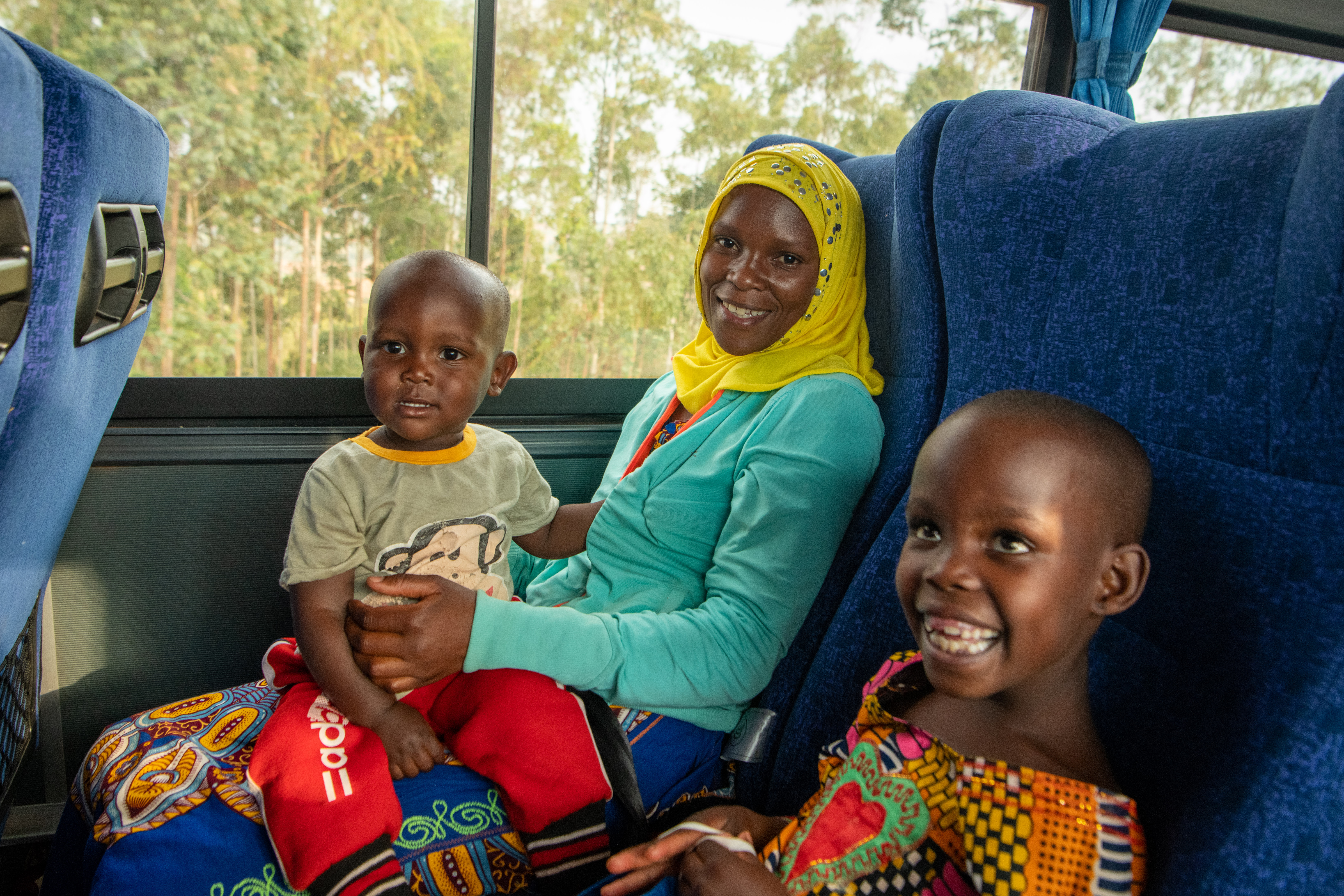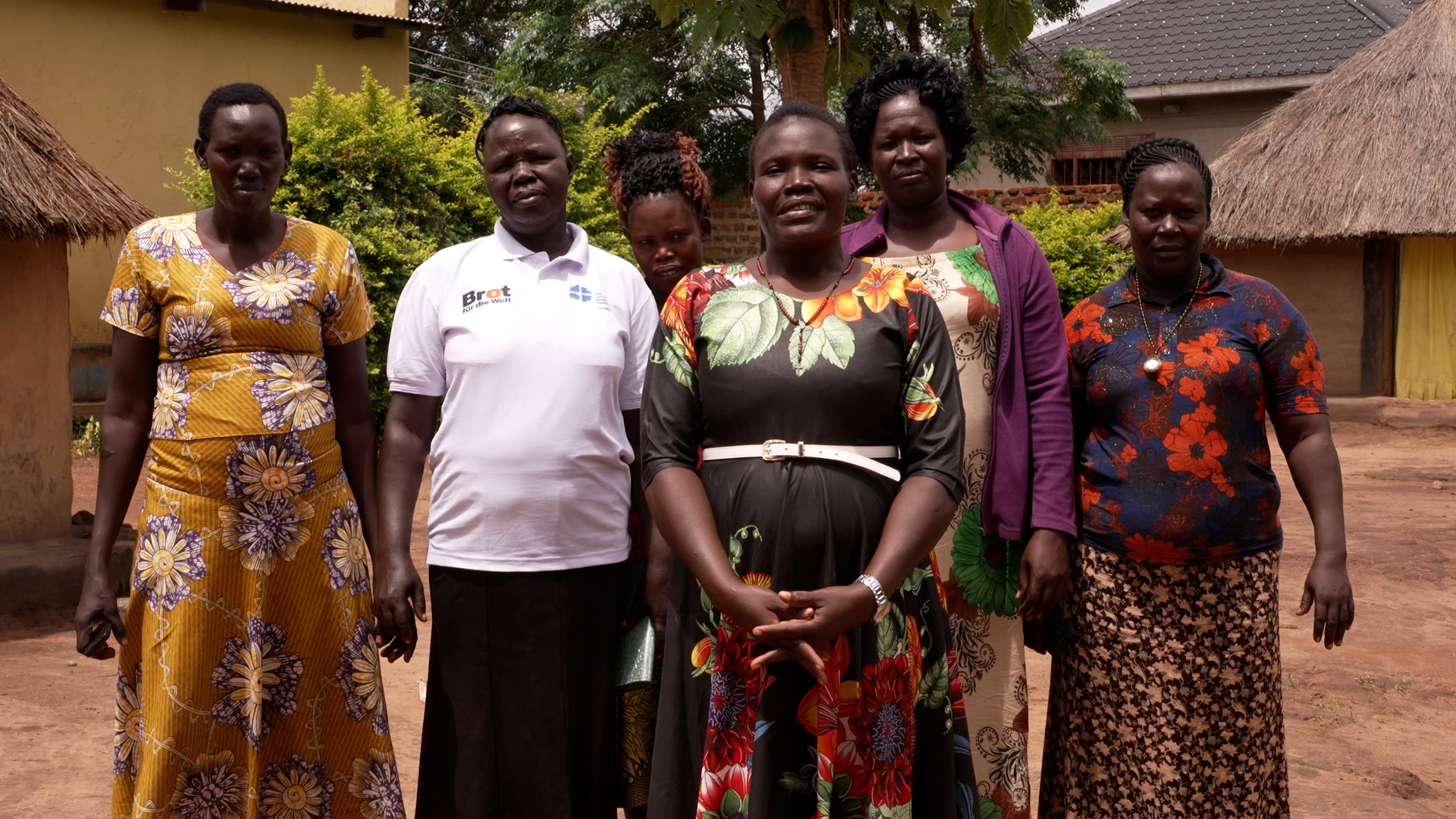Bringing life back to a city in Mali ravaged by war
This is a city living with scars. Many are visible, some are not.
But in the hot sun of the morning in the Aljanabandia District of Gao, a city of just over 100,000, there is laughter as 20 women line up to draw water for lunch.
The well was installed in 2018 with money from the European Union Emergency Trust Fund for Africa managed by UNHCR, the UN Refugee Agency. It is one of two dug at a cost of CFA14.4 million (€21,500) each, last year.
For Gao’s residents, life changed the day armed extremist groups stormed their city in 2012, driving an estimated 80,000 people to flee with their families, some to other parts of Mali, others to neighbouring countries. For those returning, the well has been vital.
“The pump has made a big difference,” said Mariam Souleye Maiga. She fled with her four children to Niger and only came back 16 months later when the armed fighters had been pushed out.
“Before, people without a tap had to get up in the middle of the night to fetch what they needed. It was exhausting, particularly in summer when water is precious.”
“The pump has made a big difference."
Mariam Abu Bakr fled with her family in 2012 to a refugee camp in Niger. She spent 20 months there. She made up her mind to come home after the armed fighters were all but forced out of the city.
“There was no question, this is my home. I had to come back,” she said.
Her longing – and determination – to come home is shared by other returnees.
Just down the street from the communal pump is an association called An End to Running. Its existence is testimony to the changed mood. Led by Mariam Souleye Maiga, it was set up in 2016 and now has 47 members, all former refugees, internally displaced people or economic migrants. With help from UNHCR and partners like Terre Sans Frontières (World Without Borders), they began to work.
Each member contributes weekly to buy ingredients to make couscous and wheat dishes like semoule.
They then sell their products and split the profits every nine months.
“We got together and decided we didn’t want to keep asking for handouts,” she said, “and this association would help us fend for ourselves.”
Nestled against the Niger River lies a spectacular vegetable garden. This, too, is the work of 18 local women, founded in 2007 with a grant of one hectare of land from the municipality. They came each day, weeded and watered, and sold their carrots, tomatoes, lettuce and other vegetables.
The association prospered. Then the city was overrun in 2012, and six of the women fled with their families. The others remained, determined not to give up their jewel.
“It was very difficult under the Islamists,” Boshira Touré, the association president, said. “We were badly treated, we had to cover ourselves completely. But we never gave up our garden. We kept it going.”
The fighters were driven out, the women who fled came back, and in 2018 the association received a CFA 1 million (€1,500) EU-UNHCR grant to buy seeds, tools, and a more powerful motor to operate their water pump.
Another success story, but it is set against the background of a city still haunted by the past. In the streets, cattle and goats graze, indifferent to the walls behind them pockmarked with bullet holes. Independence Square, just seven years ago, was a grisly theatre where public executions took place in front of crowds forced to attend.
Violence still lurks. Since November 2018, there have been at least 15 deadly clashes in Gao and nearby suburbs and towns.
While armed gangs continue to hold sway and create havoc in smaller towns and villages in the region, Gao itself is home to a large international military base. There are about 13,000 soldiers from 56 countries that make up a UN peacekeeping force working to stabilize the country.
Despite enduring threats, for many in the city of Gao, there is hope. More than 71,000 people who fled have returned. Residents like Mariam Abu Bakr still talk of fear but, she said, “now, little by little, we’re less afraid. Things are getting better.”
In Aljanabandia the water flows from the new pump and, at the “An End to Running” association, business is brisk to cater events
“If we get a marriage order,” Mariam said, “all our members have to come in and we work all week.”
The next step, she said, is to expand production. They want to start selling in towns beyond Gao. Their running, they hope, is over.















